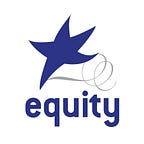DIVERSITY SPOTLIGHT: SERHAT CARADEE
Serhat Caradee is a Turkish-born Australian filmmaker who came to Australia when he was two years old. He grew up in Homebush and had a passion for rugby league, rugby union, cricket, boxing and martial arts and eventually acting, theatre and drama. He studied performing arts for five years before moving into directing theatre and film. Serhat’s latest film “A Lion Returns” explores the impact upon an Arab Muslim family of the return of a young man from the horror of the conflict in Syria. The film was shot in 10 days, a record for a movie made in Australia.
How would you describe yourself?
I’d say I am versatile filmmaker in all genres, styles and mediums. I also have passion for writing and acting.
What inspired you to get into the film industry?
It came through the love of acting and wanting to tell stories. So from a theatre and acting background I eventually moved into making short films and then feature films.
Who were your role models growing up?
My role models changed as I moved from one interest and passion to another. From Bruce Lee, Muhammed Ali during my teenage years because I was doing so much boxing and martial arts. To Yilmaz Guney (Turkish film director), Oliver Stone and Elia Kazan, when I first started getting into films. To Vanessa Redgrave and Orson Welles, because of their work and speaking out about injustice and oppression. To Abby Martin (journalist/activist) and Susan Sontag for their endless pursuit and passion for equality and human rights. Currently with Krzysztof Kieslowski (Polish filmmaker) and Nuri Bilge Ceylan (Turkish filmmaker). So it tends to fluctuate. As artists we’re endlessly learning, growing and evolving.
What would you say the biggest challenges are for you being a filmmaker?
Given the current climate, funding is always the most challenging and draining part of filmmaking. It really is. There are a handful of people throughout the industry in various position of power who get to decide which films get made and which filmmakers get to continuously work. It really can feel like a closed shop. That’s why low budget / indie films are a great medium for up and coming filmmakers to get their break and to get to tell their stories. If they suppress that funding pathway for low budget filmmakers it will really limit the type and range of stories and films that can be made. Which will be disappointing.
What is your view on diversity in Australia at the moment?
We need more writers from diverse and non-English speaking backgrounds. More writers, more stories, more characters and more opportunities. It’s that simple. It’s the chicken and the egg scenario. The industry wants to keep putting all these diverse actors and filmmakers out there, but there just isn’t enough opportunities for people from ethnic, diverse and/or non-English speaking background to work in because there aren’t enough writers and stories out there. It is a poor reflection of what our society, community and country consists of.
Where do you get your inspiration from for your films?
I watch a lot of documentaries, read a lot of books and articles especially on the news (local and international). I also love talking to people about their lives, situations and experiences. So all this becomes a library of wealth to create stories and films from.
What advice do you have for others following in your footsteps?
Read. In this day and age, you need to have a love of books, for filmmaking, biographies, acting, history, events and anything to do with the world. Expand your knowledge outside your social bubble and friends list. Watch a lot of foreign films, classic films (all decades), documentaries and get off social media.
Spending excessive time on social media does not improve the quality of your work. It only gives you a false sense of security and some validation from fake friends. It’s the biggest distraction and death to creativity.
Don’t wait for the work. Start writing and creating your own work. The fastest way into the industry is with your own screenplay. Don’t waste your days waiting and whinging.
What are you doing next?
My business partner and producer Liz Burton and I have a few projects / screenplays on our slate ready to go. They’re all on our Bonafide Pictures website. Hopefully we can be in production on the next one within the next 12 months.
Where do you see yourself in 10 years’ time?
Still working in the industry and making films I hope. But also teaching, sharing knowledge and inspiring actors and filmmakers.
Interview by Joy Hopwood. Joy Hopwood is writer/producer of features The Casting Game, The Script of Life and Rhapsody of Love, and founder/artistic director of The Joy House Film Festival.
